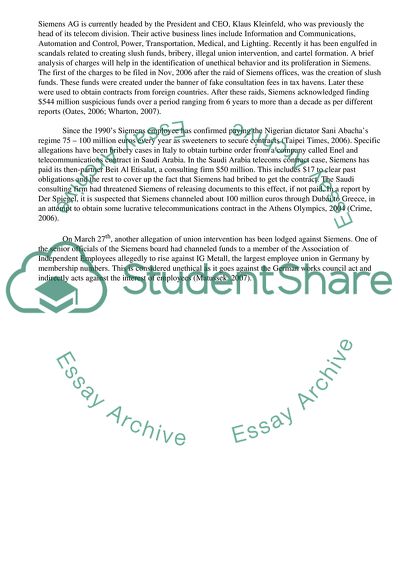Cite this document
(“Ethical Issues in Management: Siemens AG Case Study”, n.d.)
Ethical Issues in Management: Siemens AG Case Study. Retrieved from https://studentshare.org/management/1531451-ethical-issues-in-management-siemens-ag-case-study
Ethical Issues in Management: Siemens AG Case Study. Retrieved from https://studentshare.org/management/1531451-ethical-issues-in-management-siemens-ag-case-study
(Ethical Issues in Management: Siemens AG Case Study)
Ethical Issues in Management: Siemens AG Case Study. https://studentshare.org/management/1531451-ethical-issues-in-management-siemens-ag-case-study.
Ethical Issues in Management: Siemens AG Case Study. https://studentshare.org/management/1531451-ethical-issues-in-management-siemens-ag-case-study.
“Ethical Issues in Management: Siemens AG Case Study”, n.d. https://studentshare.org/management/1531451-ethical-issues-in-management-siemens-ag-case-study.


